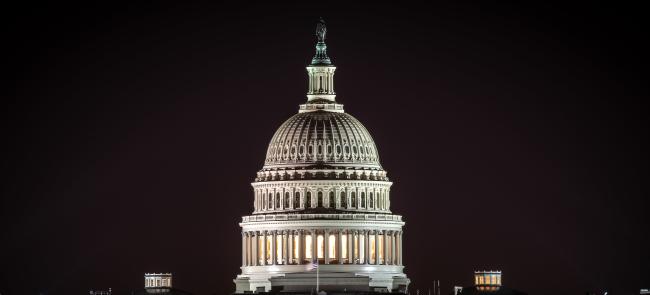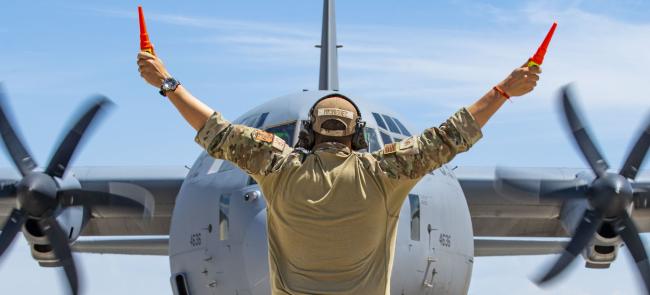
This figures to be a formative week in Congress for the development of the nation's annual defense policy bill.
The Senate Armed Services Committee will begin marking its version of the fiscal 2025 National Defense Authorization Act on Wednesday afternoon.
The committee — which includes 13 Democrats and 12 Republicans — will consider several proposals for changing America's defense policy that require congressional approval.
One of the proposals is Legislative Proposal 480, the Air Force's plan to move the Air National Guard's space units to the Space Force without the approval of the affected governors.
All 55 of the nation’s governors have publicly objected to LP 480, which bypasses gubernatorial authority that has been a part of federal law for 120 years.
The House Armed Services Committee approved such a transfer, but only with the consent of the impacted governors.
Air Force officials have been pushing SASC members hard this month for permission to make the move without regard to the current law.
The affected parties will not know the outcome of the panel’s decision until it releases its version of the fiscal 2025 NDAA. Unlike the HASC, the SASC conducts its markup behind closed doors.
The SASC will also consider President Joe Biden’s fiscal 2025 defense budget request.
Biden stuck with the $895 billion request that was part of his agreement last year with Republican lawmakers to raise the debt limit and restrict spending.
But Sen. Roger Wicker, R-Miss., the ranking Republican on the SASC, wants to increase the topline by $55 million for more missiles, planes and ships.
Wicker believes defense spending is not keeping up with inflation and escalating security challenges worldwide.
But the NDAA only authorizes defense spending — it does not provide the funds.
The actual dollars available for defense and specific expenditures are a product of the appropriations legislation that develops in separate committees in the House and Senate.
The full House will take up the version of the fiscal 2025 NDAA the HASC approved last month.
House lawmakers have submitted roughly 1,400 amendments to the Servicemember Quality of Life Improvement and National Defense Authorization Act for Fiscal Year 2025.
The House Rules Committee will determine how many amendments will come to a floor vote. Last year, roughly 350 of the more than 1,500 amendments that were filed saw a vote.
Many of these amendments come from the ideological fringes of each party.
While this is a formative week for the fiscal 2025 NDAA, much work remains on the potential legislation.
There are always differences between the House and Senate versions of the bill that must be reconciled and approved by both chambers before it reaches the president.
The way this year's elections impact the congressional calendar, however, makes it likely the fiscal 2025 NDAA may not be passed by Congress until the end of this year.
— By John Goheen










